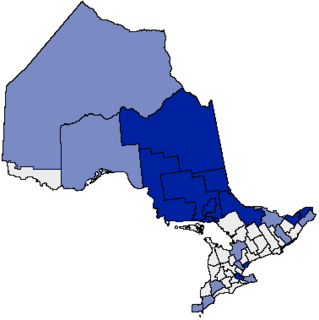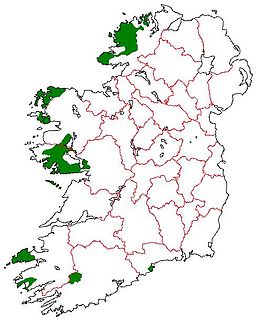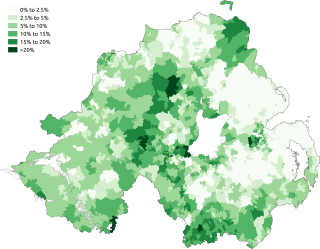 W
WThe law recognising the equality of the two linguistic communities of New Brunswick, or the more succinct Law 88, is a law adopted by the Legislative Assembly of New Brunswick, recognising the equality of the Anglophone and Francophone linguistic communities of the province.
 W
WThis article outlines the legislative chronology concerning the use of official languages in Belgium.
 W
WThe woodchoppers of the Orne were 10 Flemish soldiers during the First World War punished for their active or passive involvement in the Flemish Movement in the Belgian Army. They were removed from their platoons and moved to a penal military unit called the Special Forestry Platoon in 1918. In this penal military unit, stationed in Orne, Normandy in France, they had to work as woodchoppers as unfree labour. They were required to work 12 hours a day in harsh living conditions, they were paid 1 Belgian franc each day.
 W
WThe Education (Scotland) Act 1872 made elementary education for all children between the ages of 5 and 13 mandatory in Scotland.
 W
WThe French Language Services Act is a law in the province of Ontario, Canada which is intended to protect the rights of Franco-Ontarians, or French-speaking people, in the province.
 W
WThe Gaelic Language (Scotland) Act 2005 is an Act of the Scottish Parliament passed in 2005. It was the first piece of legislation dedicated to the Scottish Gaelic language and was seen as the first hesitant step by the Scottish Executive to provide a legislative framework for the use of Gaelic by Scottish Public sector authorities. It created a Gaelic Language Board, but created no general rights of citizens or obligations on statutory authorities to actually use the language. This is in contrast to the UK parliament's legislation for the Welsh Language which authorises the use of Welsh in public administration. There has been no significant development of the Gaelic Language (Scotland) Act 2005 between 2005 and 2021.
 W
WThe Gaeltacht Act 2012 is an Act of the Oireachtas of Ireland. The Act redefined the traditional Irish-speaking areas or Gaeltacht in the Republic of Ireland on linguistic criteria instead of on geographic areas which had been the position until 2012. While the traditional Gaeltacht boundaries still exist the Act sets out ways where areas outside the Gaeltacht can be formally designated as Líonraí Gaeilge and Bailte Seirbhísí Gaeltachta. In 2016 it was announced that Galway City, Dingle and Letterkenny would be the first recognised Bailte Seirbhísí Gaeltachta under the Gaeltacht Act 2012 subject to them adopting and implementing approved language plans. In February 2018 the Department of Arts, Heritage and the Gaeltacht and Foras na Gaeilge announced that five areas- Belfast, Loughrea, Carn Tóchair, Ennis and Clondalkin- were going to be designated as the first formal Líonraí Gaeilge areas under the Act. Foras na Gaeilge have said that they expect the status to be given to other areas also.
 W
WThe Irish Language Act is proposed legislation in Northern Ireland that would give the Irish language equal status to English in the region, similar to that of the Welsh language in Wales under the Welsh Language Act 1993. It is supported by the Republic of Ireland, Sinn Féin, the SDLP, the Alliance Party, and the Green Party, and is opposed by the Democratic Unionist Party and Ulster Unionist Party.
 W
WThe Māori Language Act 1987 was a piece of legislation passed by the Parliament of New Zealand that gave official language status to the Māori language, and gave speakers a right to use it in legal settings such as courts. It also established the Māori Language Commission, initially called Te Komihana Mo Te Reo Maori, to promote the language and provide advice on it. The law was enacted as the Maori Language Act 1987 and originally written without macrons.
 W
WThere are 27 municipalities with language facilities in Belgium which must offer linguistic services to residents in Dutch, French, or German in addition to their single official languages. All other municipalities – with the exception of those in the bilingual Brussels region – are unilingual and only offer services in their official languages, either Dutch or French.
 W
WThe National Assembly for Wales Act 2012 was an Act of the National Assembly for Wales that was given royal assent on 12 November 2012. It is significant in that it is the first Act passed in Wales to become law in over 600 years.
 W
WThe Native American Languages Act of 1990 is the short cited title for executive order PUBLIC LAW 101-477 enacted by the United States Congress on October 30, 1990. Public Law 101-477 of 1990 gave historical importance as repudiating past policies of eradicating Indian Languages by declaring as policy that Native Americans were entitled to use their own languages. The fundamental basis of the policy's declaration was that the United States "declares to preserve, protect and promote the rights and freedom of Native Americans to use practice and develop Native American Languages".
 W
WThe Official Languages Ordinance is an ordinance of Hong Kong enacted for the purpose of specifying the status and use of official languages of the territory. Both Chinese and English are declared official languages with equal status in the ordinance, and are to be used in communication between the government and members of the public. It dictates that all ordinances would be enacted and published in both languages, and allows judicial officers the choice of using either language in court proceedings.
 W
WThe Official Language Act of 1974, also known as Bill 22, was an act of the National Assembly of Quebec, commissioned by Premier Robert Bourassa, which made French the sole official language of Quebec, Canada. Provincial desire for the Official Language Act came after the repeal of Bill 63. It was ultimately supplanted by the Charter of the French Language in 1977, which imposed French as the only language for advertising and education.
 W
WSection 16 of the Canadian Charter of Rights and Freedoms is the first of several sections of the Constitution dealing with Canada's two official languages, English and French. Section 16 declares that English and French are the official languages of Canada and of the province of New Brunswick.
 W
WSection 16.1 of the Canadian Charter of Rights and Freedoms guarantees equality between English-speaking and French-speaking residents of New Brunswick. Enacted in 1993, it is the most recent addition to the Charter.
 W
WThe Statutes of Kilkenny were a series of thirty-five acts passed at Kilkenny in 1366, aiming to curb the decline of the Hiberno-Norman Lordship of Ireland.